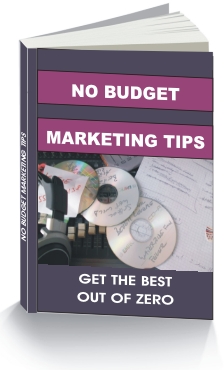We all know by now that quite a lot has changed in the music industry. New (and often weird) business models pop up all the time, popular acts cancel their record contracts, the media rejoice – and ‘small’ musicians get lost in irritation: “what’s the best for me?” is the ever popular question whose answer depends on what you really want – and what you’re capable of.
The 3 Pros about Record Deals
What really makes a record label score big time is its distribution network that covers either certain geographical areas or a particular scene or market niche. Another big record label asset is a number of well-oiled contacts from media, radio, television, promoters, retailers etc. Finally there’s a label’s financial resources that enables it to make it all happen for an artist all the way from production to promotion. Granted, these are three very good reasons for tose old dinosaur labels, especially if your goal is to become a mainstream chart act.
The Myth Revealed
So if you want to operate without a label you should have these three things available: your own distribution network, good contacts to build a promotional campaign with and, the root of all evil, money.
To get your music out there extensively and cover all the brick and mortar stores you can hire a sole distributor and let them handle the work. This is actually what most indie labels do because they cannot afford their own in-house distribution department. This is actually that often cited ‘new model’ used by such big acts like Madonna, Moby or Trent Reznor.
If there wasn’t the money thing. The three aforementioned big ones might be doing fine with their model since they are either sufficiently popular or wealthy enough to cover all expenses. Especially the financial side is too high a risk for most, if not all, independent self-sustained musicians. Particularly mainstream and chart-oriented topics even create big divergence losses since you cannot target a specific ‘I love what’s on the radio’ audience with your promotion campaign. Instead of addressing a well-defined death metal or minimal house audience you will have to speak to everyone from 9 to 99 years old.
Bottom line: If your goal is to become a mainsteam chart act then an influental record company is the right thing for you.
The Alternative: Niche Products
The so-called ’DIY-Label’ works best for musicians whose sound is off the mainstream and appeals to such (now) niches as rockabilly, dirty south, psychedelic rock, bebop, hair metal and so on – any type of music that doesn’t fit the current mass market.
In such niches the audience, or call it the ‘scene’ that consists of fans, media, radio shows, sales outlets and live venues is rather restricted – however, it is focussed all the more. In other words, you probably won’t find any metal head among the readers of a hip hop magazine or blog. As a result it is far easier to plan, calculate and execute a promotion campaign within a specific market niche – and keep your sleepless nights at minimum.
When can your own Label pay off?
At this point you have to be clear about your objective: is it your goal to simply become popular (at first) or do you want to make money as quickly as possible?
If you manage to sell 500 CDs all by yourself (directly as well as through third party stores) you may by rule of thumb be better off than with three times that sold through a label. For many musical niches that is already a good number.
“With 3.000 copies sold in the melodic hard rock niche you already rank among the big buys in that scene, apart from the stars from back in the day” says Birgitt Schwanke of GerMusica Promotion who has done promotion for Peter Gabriel, Ozzy Osbourne, Bruce Springsteen and others, including many smaller niche artists. A friend of mine is the drummer for a heavy metal band that has gotten quite a few cover stories. They sell between 5,000 and 8,000 copies per album. More shocking facts? According to CD Baby stats an album sells less than 100 copies on average.
To sum it up, if you are fine with selling not so many copies but keeping the lion’s share of income, then your own DIY label is the right choice for you. As long as you have the time and resources to handle the work yourself, do it as long and as far as you can. Like they say about managers, get one once you need one, the same is true about labels.
The Label Springboard
Another way of (ab)using a record label is what many of the big ones have done: use a label and its resources to get your name out and establish yourself in whatever could be your niche. Once you have gained enough popularity, jump off, go DIY and feed off the label’s efforts. That way you would not get too much out of your first, second or even third release (they might just cover the label’s expenses), but with the following self-released music you may cash in by reaping what the label has sowed.
So whatever your path will be, remember what Daddy said: ‘Don’t marry in haste…”
To your success – Julian Angel
– – – – – – – – – – – – – – – – – – – – – – – – – – – – – – – – – – – – – – – – – – – – – – – – –
 Get more exclusive Music Business
Get more exclusive Music Business
and Marketing tips with the
MusicBiz Madness Newsletter
click here to sign up and get the eBook



